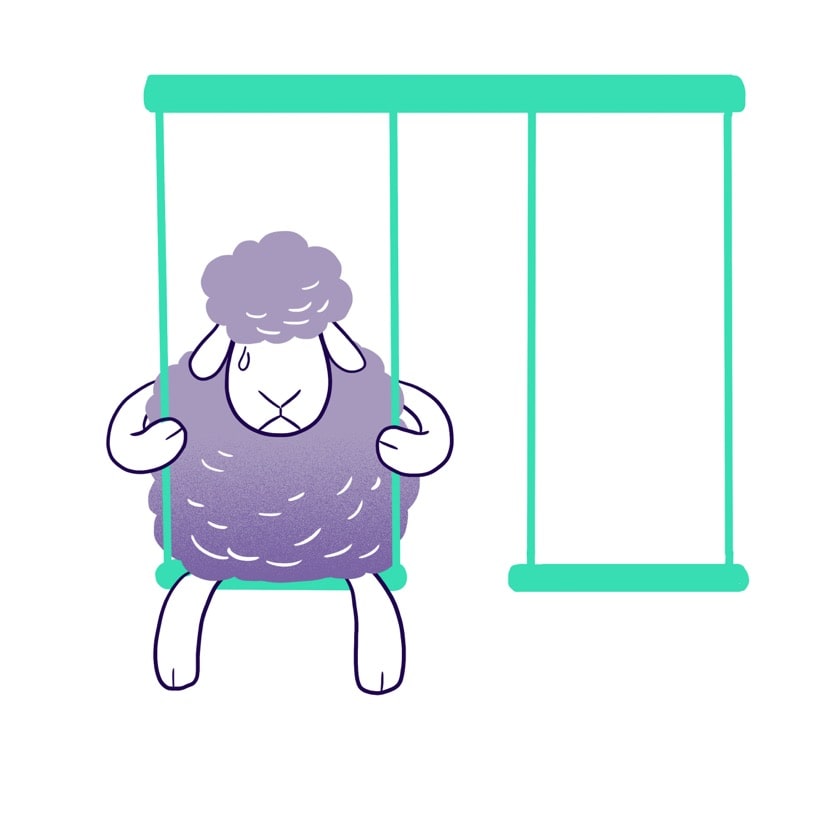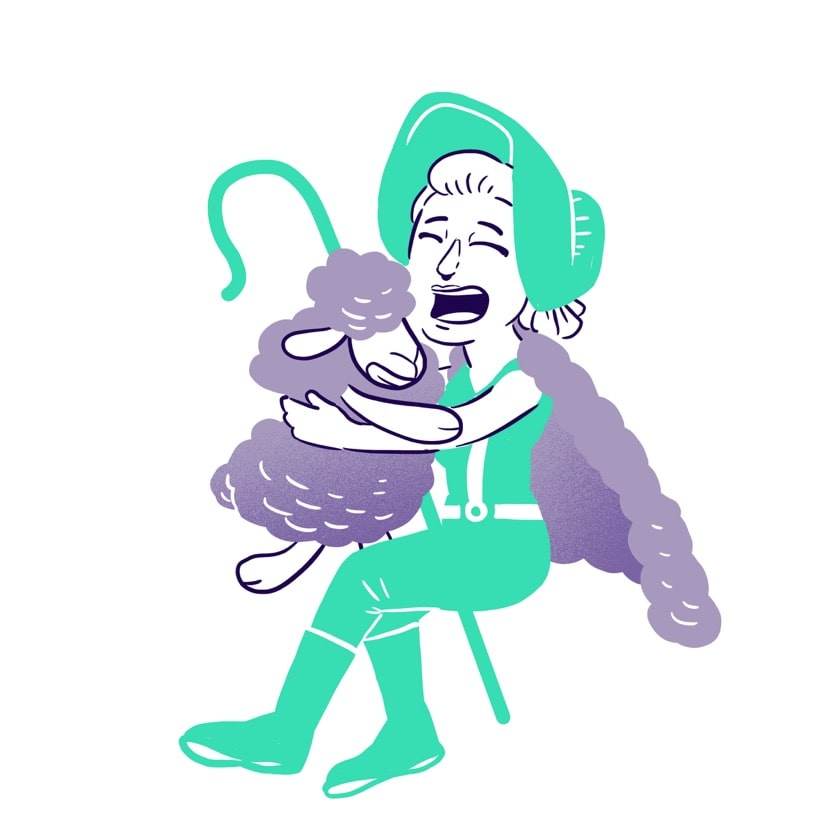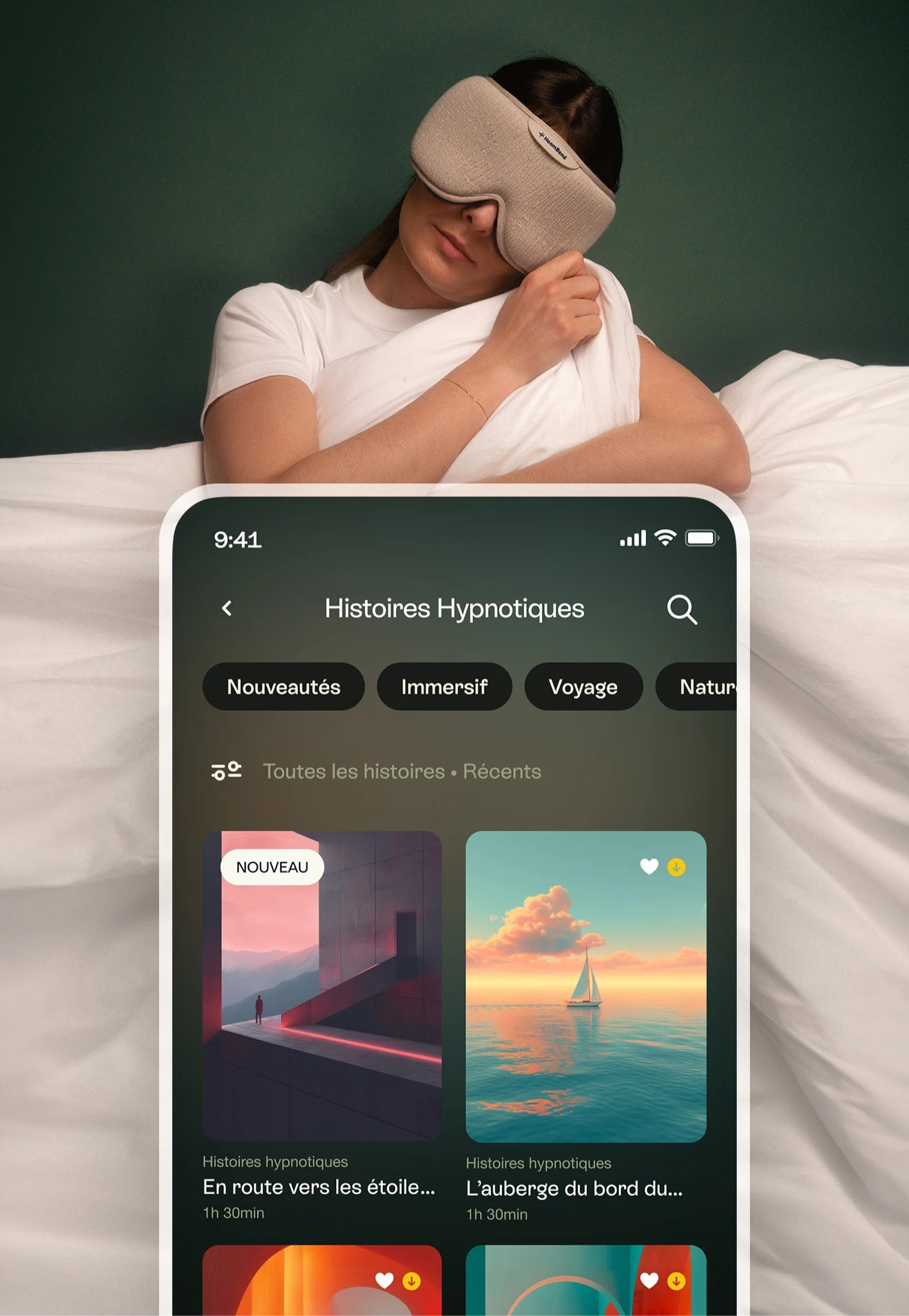Alone with insomnia: what impact does loneliness have on our sleep?
Loneliness, that strange feeling that we still have a hard time grasping. In fact, it's more likely that it's the one that apprehends us, even kidnaps us, sometimes in the middle of the night. And then, suddenly, we feel much less alone in the company of "Ms. Insomnia" to spend the night! But then, is insomnia really a consequence of loneliness ? What relationship can we establish between feelings of loneliness and loss of sleep ?
On the menu for solitude tonight: a little extra insomnia!
What do we know about the effects of loneliness on the psyche , and more specifically on the mechanism of sleep? In reality, there is still some vagueness about the interactions between the two: we know that loneliness is linked to sleep disorders, but it is still difficult to clearly identify the workings between the two! Despite this, we note that a person's isolation can directly influence the quality of their sleep . Indeed, a study carried out by King's College 1 in London in 2017 revealed that in a sample of 2,232 young adults (aged 18 to 19), those who reported feeling "lonely" or "very lonely" (nearly 30% of them) had a 24% higher chance of being subject to sleep disorders. This study, relayed by the very serious Psychological Medicine 2 , concludes that "loneliness is strongly associated with poor sleep quality in young people, which underlines the importance of early interventions to mitigate the long-term results of loneliness."

However, it should be emphasized that for this study the feeling of loneliness (social or emotional) is not the only cause of insomnia.
Indeed, other factors besides loneliness itself add to, or even aggravate, these sleep disorders: "One of the reasons proposed for restless sleep in lonely people is the possibility that they feel less safe." This feeling of insecurity stems essentially (70%) from violence suffered by the study subjects. In addition, a study carried out in the United States (in Dakota) 3 was unable to clearly establish a direct link between loneliness and insomnia even though the subjects suffered from "fragmented sleep" for the most part. This study was carried out on 95 isolated people in a rural environment who reported feeling lonely.
So there is a link between loneliness and insomnia , a link that is giving our scientists a hard time and that wishes to remain anonymous, hidden in the shadows of our nights. A loner surely! In any case, there are indeed some effects of loneliness that have an impact on the quality of sleep.
Sheep looking for shepherd for the night, urgent!
Well, don't worry, this isn't a job offer for a possible reconversion to the profession of shepherd! Let's say instead that a fairly logical link (the famous mysterious and solitary link?) can be established between the feeling of loneliness created by social or emotional isolation and the fact of seeing one's nights disturbed, to the point of being reduced to counting sheep. This nocturnal shepherding activity has no proven effectiveness for falling asleep, on the contrary, it would even tend to stimulate your brain, and therefore delay your falling asleep. Anyway, back to our sheep! Loneliness and isolation tend to create a feeling of insecurity in individuals , this has been highlighted in certain studies, such as the one carried out in Dakota 4 : "The social nature of humans can be manifested in part by our dependence on feeling safe in our social environment to sleep well." The feeling of insecurity keeps you awake or wakes you up, it is a preservation mechanism put in place by the human mind. And this can turn into a vicious circle.

Indeed, what better way to pass the time, apart from counting sheep of course, than to occupy ourselves with the television, the computer, the tablet or the smartphone? We stay awake, we put off bedtime as much as possible so as not to find ourselves alone in this fateful moment. The circadian rhythm , that is to say our biological clock , is disturbed. We no longer sleep at night but we take a nap during the day because it is more reassuring, unconsciously. And the following night, it's the same thing again, we think, we stay awake, we can no longer sleep. We can carry our loneliness late into the night by looking for a way to combat it through social networks or by watching a good film.
We cannot be certain of the cause and effect link between loneliness and insomnia, but it does appear, according to certain studies, that solitary individuals have a greater propensity to have sleep disorders . Our current lifestyle 5 may not be unrelated to this. Are we heading towards a resurgence of vocations in the profession of night shepherd? Perhaps we feel less alone with these kind companions!
Sources:
[1] Loneliness in young adults linked to poor sleep quality , Matthews T. et al, “Sleeping with one eye open: loneliness and sleep quality in young adults Psychological Medicine”, 2017 [2] Sleeping with one eye open: loneliness and sleep quality in young adults , Matthews T. et al, “Cambridge University Press” site, 2017 [3] and [4] Loneliness Is Associated with Sleep Fragmentation in a Communal Society , Lianne M. Kurina, Kristen L. Knutson et al, “Sleep” site, November 2011 [5] Solitudes in France , “Fondation de France” site, 2016


